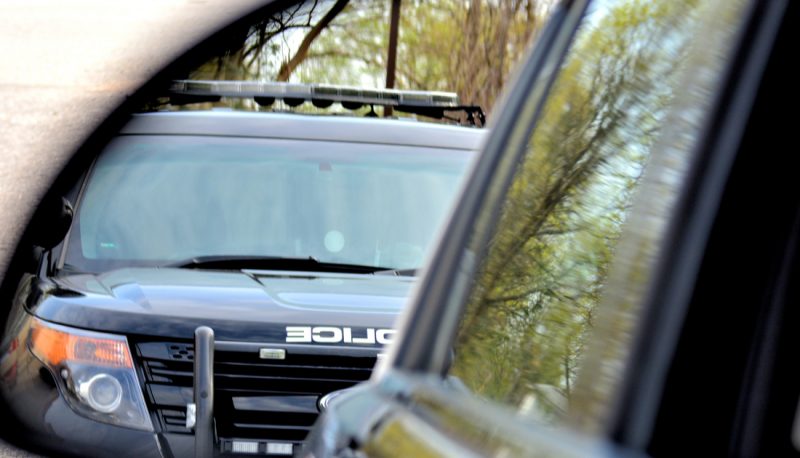“Confirmed Judges, Confirmed Fears” is a blog series documenting the harmful impact of President Trump’s judges on Americans’ rights and liberties. Cases in the series can be found by issue and by judge at this link.
Trump Fourth Circuit judge Julius Richardson cast the deciding vote to affirm a district court opinion that upheld an extended search of a car and seizure of items without a warrant, based largely on the fact that the car was stopped for speeding and the trooper became suspicious. The August 2020 case is US v. Villavicencio.
Yulian Manuel Villavicencio and Isidoro Perez Rivero were pulled over for speeding on I–95 by a North Carolina state trooper. The two longtime friends explained that they were traveling back to Florida, where they lived, after spending the night with female friends at a hotel in North Carolina. Villavicencio, the driver, consented to a frisk for weapons, which produced none, and sat as instructed in the trooper’s car as his information was checked. Although his English proficiency was limited, he attempted to answer the trooper’s questions.
The trooper became suspicious of drugs, claiming that this was largely because the two were traveling to Florida in a car rented there; they were driving on I-95, a known drug route; there were four cellphones in the center console; and Villavicencio appeared “nervous” and could not provide details of his travel itinerary, including the name of the hotel the friends had been at and the town they were in. She issued a warning ticket for speeding but continued to detain the two as a second trooper arrived. He conducted a “canine search” of the vehicle, which produced no indication of narcotics. The first trooper conducted a search of the vehicle’ s interior and noticed that the skirting on the front passenger seat was loose, which fell after a “little effort.” This produced a number of items, including a baggie with a number of fake credit and identification cards and a skimming device used to capture credit card information from a cardholder. A later search of a laptop in the vehicle revealed a large number of credit card numbers. The two were charged with identity theft and related offenses.
Villavicencio and Rivero moved to suppress the evidence recovered from the search, contending that the seizure violated the Fourth Amendment because the trooper improperly extended the stop to investigate matters unrelated to the traffic violation. A lower court denied the motion and they appealed.
In a 2-1 decision in which Trump judge Richardson provided the deciding vote, the Fourth Circuit affirmed. The majority agreed that continuing to detain the vehicle beyond the traffic stop constituted a “seizure” under the Fourth Amendment but found that the trooper did have “reasonable suspicion” of criminal activity, due to the factors discussed above. In addition, the majority noted that there had been consent to search the vehicle. Under the “totality of the circumstances,” the majority concluded, the lower court was correct to reject the motion.
Judge Albert Diaz firmly dissented. He “emphatically” disagreed with the majority’s effort to “cobble together” the trooper’s observations to justify extending the traffic stop and seeking consent for the search. He pointed out that I-95 is a “major thoroughfare” and that previous cases had found that there is “nothing inherently suspicious” about driving on such an interstate highway, particularly in light of where the two friends were going. Similarly, Diaz went on, there was nothing suspicious about where the vehicle was rented and where they were going, considering that they lived in Florida; given these facts, Diaz noted, it would have been suspicious if the vehicle “had been rented anywhere but Florida.”
As to Villavicencio’s “nervous” behavior, Diaz explained that the Fourth Circuit had previously held that a driver’s nervous behavior is “not a particularly good indicator of criminal activity” because ”most everyone is nervous when interacting with the police,” especially people of color like Villavicencio and Rivero. He pointed out that when asked where they had been, Villavicencio specifically offered to allow the trooper to check the vehicle’s GPS and his hotel receipt, which shows he was not being evasive, as the Fourth Circuit had held in a previous similar case. As to the cellphones, Diaz noted that unlike in a previous case, the trooper did not observe that any of the phones were prepaid phones typically used and discarded by those involved in the drug trade, and that the trooper was committing “rank speculation” in suggesting the extra phones were for criminal as opposed to legitimate business activity.
Overall, Diaz concluded, these factors failed to provide “concrete reasons” that point to “criminal activity,” as the law requires to extend a traffic stop. Instead, he pointed out, the court was presented with an officer’s “hunch, followed by a legal catchphrase” of “reasonable suspicion.” As the Fourth Circuit had held in similar cases, it is “impossible for a combination of wholly innocent factors to combine into a suspicious conglomeration unless there are concrete reasons for such an interpretation,” which did not exist here. As a result of Richardson’s deciding vote, however, that is exactly what happened in this case.

